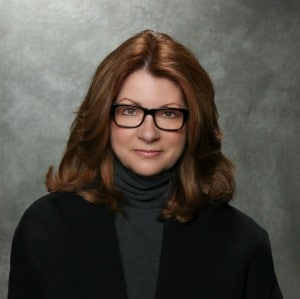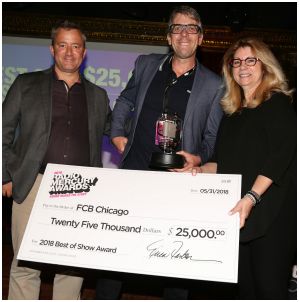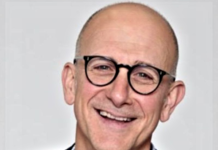
The ongoing debate about the way advertising agencies treat radio, and vice versa, started by Robert Christy and expanded upon by Brian Winnekins, caught the attention of our good friends at the Radio Advertising Bureau. The RAB spends a lot of time developing lasting relationships with big advertisers and agencies, as well as training and educating radio sellers on how to work with those two important groups. We spent some time on Tuesday discussing the issue with RAB CEO Erica Farber.
Radio ink: Were you surprised by all the reaction we’ve received on this topic over the last two days?
Erica Farber: We honestly deal with this almost on a daily basis. And so I’m not surprised. I will say there have been some very thoughtful pieces on both sides.
Radio Ink: This really isn’t anything new, is it?
Erica Farber: No, it isn’t, and you know, if we take a step back for a moment, the role of an advertising agency today, in some senses, is actually a little bit different than it was. And I think one of the biggest issues that we’re faced with — it all gets back to developing relationships.
Many times when we’re dealing with an advertising agency, we think of it as a transactional relationship. It really isn’t a transactional relationship. And definitely one size doesn’t fit all. It’s about developing relationships and being thought of as a trusted advisor. Many times when we’re developing relationships with agencies, we’re reacting to a specific project or something that’s on the table at that point. That’s sort of where it goes a little bit awry.
It’s very interesting on the national side, which is really where we spend much of our time. When you think about these relationships, it used to be how much money an agency makes buying radio, buying media. The reality is, in today’s environment, buying media is not a profitable business for an agency anymore. They make their profits on fees and in other areas. The media side of their business they do as part of the relationship, but it’s not the profit center it once was.
When you think about this disconnect between radio and ad agencies, they’re looking for ideas, education, and ROI success stories. Now, it’s hard to do that when there is a specific buy on the table, but the important thing is walking in, learning as much about these agencies as we can, and positioning ourselves as an advocate, educator, and a trusted advisor. That’s, I think, where the disconnect comes.
Radio Ink: What is your advice to radio salespeople and managers about how to develop that relationship?
Erica Farber: That’s where training comes in. It’s very important that we understand their business and we do our best to educate them on the audiences and the customers we can bring them. It takes time to develop a relationship. It could take up to 18 months to actually penetrate an agency or client because there are multiple people involved in making that decision.
Unfortunately, sometimes we’re sending out our sellers with a very specific idea in mind. But that’s not how you’re going to develop a relationship. You’re going to develop a relationship because you’re bringing ideas, education, and information. One of the great strengths that we have is that we are still closest to the purchase time, so we can deliver customers to our advertisers. And now we also have a way to prove to them that we’re delivering that through data, analysis, and analytics. So that relationship is more sophisticated today than ever.
Radio Ink: What are some recommendations for salespeople to build that relationship — and make sure they’re not overdoing it so that when the buy is up they are going to be one of the first the agency calls?
Erica Farber: You want to be top-of-mind when the buy comes down, not when it’s on the table and you go in and say, “Oh, you need to use me.” Do your research, and have a specific plan. Every radio station — and this is a generic statement — but there may be 10 strengths that you have, and we have a tendency to weight all 10 of those strengths the same. On a client-for-client basis, or an advertiser basis, you may find that only three or four of your strengths are important to that advertiser or client.
That comes from understanding the client and doing a CNA. When you do your CNAs with clients today, there is so much information available. Find out about the people who work at that agency. How is the agency structured? How do they view media? What are they currently buying? What aren’t they buying? Who makes the decision? Are they implementing a decision that the client has made, or are they taking suggestions to the clients? You need to do a lot of work before you actually call someone to get that appointment.
Sometimes when we don’t do our homework, and we get the appointment, their time is so valuable that it’s not the time to start asking basic questions. We need to already have the answers and say we’ve done our homework: “We want to share with you how our radio station or clusters affect the market. We know what we can do in this marketplace, and we want to share that with you.” It’s more listening to them and getting them to talk than us talking, because the more we can get them to open up and tell us what they’re doing, the better armed we are to be able to go in with very specific ideas and education. It’s not easy.
Radio Ink: When you’re talking to advertisers and agencies, what do they want to see us doing better?
Erica Farber: Here’s the perfect example. They don’t want stations to come in and say, “Oh, I have this great promotion this week, you want to buy it?” They don’t want to hear that. What they want to hear is, “Here’s a way you can reach your potential customers. And here’s the program we’re going to execute.” Make it specific for that advertiser.
We have a tendency, if we’re doing a promotion, to take it to them and expect them to do what we want them to do. We should be listening to what they want, understanding who their demographic is, what they’re trying to accomplish, and then go in with a program customized for that client. So ask yourself, as an AE, what differentiates you? What makes you stand out? You don’t have to be the number one radio station. That’s the beauty of radio — everyone has listeners that are meaningful to an advertising agency. When you say, “I’m number one,” most clients don’t believe it because everyone says they’re number one.
Also, when you get involved in your local community, you’re going to meet these executives. Whether it’s through an ad club, or it’s your volunteer association, or with your kids who are in the Boy Scouts or Girl Scouts. When you live in a local market, you have an advantage. Your neighbors, many times, are the advertising decisionmakers. So you’re developing a relationship based on something you’re both involved in. That’s a great door opener.
Radio Ink: What about agencies constantly requesting added value or free stuff? Is that something we’re just never going to be able to get away from?
Erica Farber: That’s a double-edged sword. We created that, and so now they ask for it, thinking that they’re enhancing a buy. And many times, we don’t even question why or how they use it or what they’re trying to accomplish. We’re not asking the right questions. Are they saying they want 12 more spots? What they’re really saying is they want discounted rates. If they want discounted rates, and you create a package for them using discounted rates, you’re not going run their spots in prime time.
But many times, we don’t even know what they’re asking. They don’t even know what they’re asking for when they say, “Well, what else are you going to give me?” It gets back to, Are we asking the right questions? Are we truly creating value for them, and are we proving we can provide solutions and ROI that are meaningful to their client?
Radio Ink: There are a lot of things the RAB is doing to help educate the radio industry on these things.
Erica Farber: Recognize that our work at the client and agency level is with the larger national agencies. We have long-term relationships with them, and we’re brought in, many times, to educate them on what’s going on with radio. Education is a big part of what we do. We work very closely with the 4As on best practices. We also are a thought leader partner with the ANA, the Association of National Advertisers.
Four times a year we have an e-mail publication called Matter of Fact, which is a newsletter sent to thousands of agencies and advertisers across the country. It’s available to any advertiser — doesn’t matter, big or small — and we encourage our radio stations to provide us advertisers to be included on that mailing list because we know, as an advocate, that’s our job. Of course, with the Radio Show, we produce a lot of the sessions that have to do with advertisers and agencies. The more we can move that conversation along, the better.
As we say to our members, as much as we wish that we could get them on specific buys, that’s not our job — as much as I’d like to be able to do that. We’re never going to actually get a station or a market added directly, but we do advocate very strongly and make sure that especially the big agencies are looking at us for our digital assets, for our local broadcast assets, and for our off-air assets. It’s the best opportunity that radio’s had since I’ve been in the business, because we can now provide true solutions to advertisers’ issues, once we understand what they’re doing, because we have so much more that we can bring them other than traditional spots.
Radio Ink: The RAB also goes into markets, visiting stations and advertisers.
Erica Farber: We have a program called “Radio. It’s On.” We’re working on one now that we haven’t announced yet. It’s a top 10 market on the East Coast this fall. We work with all of the stations in that market, and we produce a 2 1/2-hour seminar for local and regional clients. It includes everything from a sort of generic “Why radio?” to bringing in Nielsen to talk about ratings. Depending on the focus of that particular market’s management, we may bring in a speaker. It could be a futurist. It could be a media person discussing a success story. It varies.
The last session is with the local talent. I will tell you, time after time, every time we’ve done this, the most impactful part is that last session, when we have eight local on-air hosts talking about their experiences. I don’t care how sophisticated the advertiser is or isn’t, that resonates with them. At the end of the day, we have a cocktail party, and then it’s up to the local market to continue to develop those relationships.
Radio Ink: For managers interested in a market visit — should they call the RAB?
Erica Farber: Absolutely, call us. We are more than happy to work with them and help organize the event. It’s great, because it’s not selling one station against another. It’s talking about the medium and the strength of the medium and all of the exciting things going on in the business.
Radio Ink: I surely want to mention the Mercury Awards the RAB does every year. That’s clearly a great example of radio and agencies working together.
Erica Farber: It’s still fresh in my mind because we had a meeting recently recapping how it went and what we need to do better, because we’re very critical of ourselves. We want to make sure we put our best foot forward every year. One of the things we talked about was which agencies are involved and which aren’t. Sometimes some of the agencies aren’t submitting work. They may be using radio, but they say their work isn’t good enough to be judged, which I think is pretty interesting.
about was which agencies are involved and which aren’t. Sometimes some of the agencies aren’t submitting work. They may be using radio, but they say their work isn’t good enough to be judged, which I think is pretty interesting.
The diversity this year was fantastic, and you saw, not only from production that local radio stations did, but from major agencies, how they use the medium. Sometimes it’s 10 seconds. Sometimes it’s emotional. Sometimes it’s funny. Sometimes it’s a major integrated campaign. Every time, the audio portion of their campaign is so important, and these creative people are so excited. They look forward to the Mercury Awards. It’s a big big deal to them. They all say it’s something their senior executives within the agencies talk about, and how important it is. They use it to get new business, and they use it on their resume. It means something. It’s very important to them. (All of the Mercury Award information, including audio of the winning spots, can be found at RadioMercuryawards.com, or you can go through the RAB website.)
Radio Ink: Did we miss anything?
Erica Farber: Obviously, we can all get better. Again, these relationships don’t happen overnight. As we’re putting together our sessions right now for the Radio Show in the fall, this is a topic we will continue to address. It’s really important, but we can’t be emotional about this. We have to be pragmatic and we have to do our homework and we have to be as smart as we can.
For more information about the Radio Advertising Bureau GO HERE





